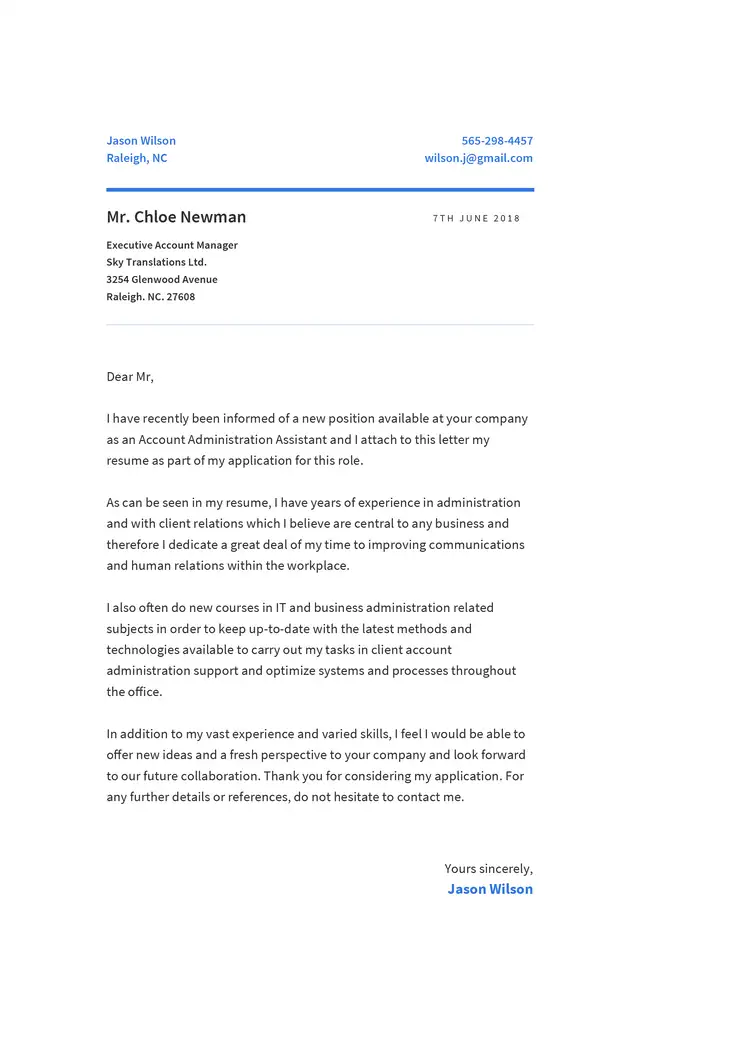How to Address a Cover Letter for a Resume
Discover how to address without being too informal or too distant

Writing a cover letter poses various obstacles along the way. One of the very first hurdles candidates come up against is the right way to address a cover letter. There is so much conflicting information about how to address a cover letter without being too informal or too distant but the following guide will give you an idea of how you can tackle these issues in every job application you make!
Once you’ve created your letterhead, matching your resume, including the important contact information and you’ve got the recipient’s details in there too, it’s time to start off the actual letter. This is where many candidates get stuck… how do you address the person on the receiving end of your cover letter? If you haven’t written a letter in years or possibly ever, like many jobseekers these days, how can you know what’s appropriate?
There are some basic rules that should be considered when addressing a cover letter that can be seen in cover letter templates as well as online cover letter builders. Here we give you the most essential methods for addressing a cover letter when you don’t have a recipient’s name and a variety of aspects to consider even when you do have a name to send your letter to.
To Whom to Address a Cover Letter?
A cover letter should begin with a formal greeting so it’s crucial to decide who the right person is who should receive your job application. This means jobseekers need to investigate the company they’re applying to in order to find out who the corresponding hiring manager is and most importantly their name.
The ideal way to address a cover letter is directly to the person who will be carrying out the interviews and reviewing the applications. There is a big difference in the emotive response of receiving a letter addressed directly to you with your name correctly spelt and the right title, than a generic or completely impersonal address, which is why it is always better to research the company and vacancy so you can use the hiring manager’s name.
Another reason that it is vitally important to research the organization you’re applying to, is to be able to decide whether the company culture is more of a formal or casual environment. This information allows candidates to measure the need to be more sophisticated in their letter address or if a first-name basis is appropriate.
A job vacancy usually indicates at least an email and a website or a phone number where you can contact the company. These should be your first ports-of-call to find out who is the person responsible for recruiting in your field. Do not be afraid to call or email simply to find out this information because a little initiative can go a long way.
Finally, if your search is unsuccessful via the website or vacancy advert for a name, check out LinkedIn for managers, HR staff and department directors to find a suitable person to whom to address your cover letter.
Options for Addressing a Cover Letter
There are several possibilities when it comes to choosing how to address a cover letter which include different salutations and various ways of naming the recipient.
The most typical and yet outdated and inadvisable ways of beginning a cover letter include the ‘To whom it may concern’ cover letter and the ‘Dear Sir/Madam’ opening which not only alienate the reader but also provide evidence that the candidate has not made any extra effort to find out who will be reading their job application, demonstrating a lack of interest in the position or company.
Writing Dear + Title + Full Name or Last Name is any candidate’s best bet to avoid the hiring manager losing interest before they have even begun to read. This way the letter is formal and personal at the same time which appeals professionally as well as on an individual level.
Take care when addressing female recruiters and managers if you do not know their official title instead of guessing between Mrs and Miss, it is best to stick to Ms, which does not refer to marital status.
Another aspect that should be taken into account is the possibility of a cover letter for a job in a very laid-back company. It may seem like you could begin your letter in a casual way as though addressing a friend. While using a first name is acceptable, the greetings hi and hello are never appropriate in a cover letter.
Remember that many prospective employers may have a different title such as Prof. or Dr. before their names but in case of doubt, you can always drop the title altogether and go with the full name.
How to Address a Cover Letter with No Name
A truly difficult situation arises with the addressing of a cover letter when, despite your extensive research on the company website and even LinkedIn or other social media, you cannot find the name of someone to write to.
A key method for how to address a cover letter with no name is to use a generic Dear Hiring Manager, although this can be controversial. There are some recruiters who approve of its use and others who would rather there be no salutation in its place.
Generally, we would recommend dealing with the problem of who to address a cover letter to if unknown by customizing the job title to fit the person who would most likely be the person responsible for the candidate were they to be successful, such as Dear Sales Manager, Dear Finance Manager or even Director if relevant.
Get extra advice from CoverLetterCoach regarding how to format a cover letter and make your job application a professional and winning candidacy.